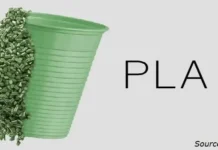Last Updated on March 23, 2024 by Saira Farman
Every single thing has its pros and cons. If you’re interested in the agriculture industry, then you must have heard about organic farming.
It is glorified, or at least it sounds like that. Words like natural, organic, eco-friendly, and vegan are often abused as being the most perfect thing ever. Although it is indeed good, there are always downsides to it. Many people only discuss the pros of it and leave out the cons.
Here we are going to have a neutral conversation on the advantages & disadvantages of organically farming. First, we will go through the advantages and then disadvantages. So with no further ado, let’s get into it.
Table of Contents
Advantages of Organic Farming
No doubt, there are many advantages of farming organically and we are going to have a look at a few of them.
1. Better 2Nutrition & Flavor
Organically grown crops are far better than the ones tempered with chemicals and other things, there’s no argument against it. Other than that, organic cattle farms that produce animal by-products such as fresh milk and meat have better quality, taste, and nutrition.
There are no harmful preservatives in the product at all. Other than that, the fruits and vegetables are grown naturally as well.
2. Supporting Pollinators
Unlike inorganic farming, there is no use of synthetic chemicals used in agriculture. The common chemicals used in agriculture such as neonicotinoids and glyphosate are very harmful to natural pollinators.
Eliminating the use of such chemicals helps the pollinators such as bees and butterflies to pollinate the crops. It preserves the natural ecological process as well.
3. Genetically Modified Organisms No More!
This is one of the simplest and yet the strongest point of our discussion. Organic farming eliminates the growth of genetically modified organisms, also known as GMOs. Even though they may help the crops to grow faster, yield more produce, and a lot more, food items grew with the help of GMOs can trigger allergic reactions or terminal diseases.
These were a few advantages of organic farming. Let’s move on to the downsides of organic farming that often people don’t talk about.
Disadvantages of Organic Farming
As much as there are advantages of organic farming, there are many disadvantages as well.
1. More Labor
Often farmers manually remove the weeds with their hands. It may seem fun doing in your backyard but when we say farms of acres, it’s not fun at all.
There are many farming techniques that can help reduce the time and labor taken for simple things. It is recommended for farmers to start practicing bio-intensive farming or permaculture.
2. Marketing Difficulties
The farmers that practice inorganic farming practices have a well-defined target market. They sell their products to suppliers and marketplaces while the organic farmers have a hard time marketing themselves.
Because they don’t use chemicals to store their produce, they usually sell the crops and other produce at their farms. However, people who know about the local farmers’ market always go there whenever they need fresh vegetables, fruits, or milk.
It still makes it harder for organic farmers to market their products to the bigger market.
3. Higher Initial Costs
A lot of organic materials and soil amendments such as rock dust are expensive compared to agricultural chemicals.
Anyhow, the cost might be higher but it is totally worth it for organic farming. The soil amendments and organic fertilizers are required in large amounts at the start only. As time passes, the amount required is reduced. However, there are many leading businesses that promote the usage of chemicals and commercial fertilizers for rapid progress in output. However, such a tactic is only good for those businesses who want to produce in massive quantities. Agro businesses listed on a leading Chinese B2B marketplace can provide you with quality products.
4. Lack of Subsidies
Organic farmers don’t have any kind of support from the government. Even in most industrialized countries, organic farming is very risky, leaving the farmers vulnerable. For instance, if an organic farm gets wiped out because of terrible weather conditions or the farmer faces a financial crunch, he would have to deal with all of that by himself.
If an organic farm is wiped due to weather conditions, or lack of necessity, or any other unavoidable condition, the farmer would have to just sit through it for a year or more. Until the damage is repaired or the crops are ready to be planted.
Bottom Line—Is Organic Farming Worth It?
From a consumer’s point of view, organic farming is actually very beneficial. It gives the consumer full nutritional value of the product and has no side effects.
Moreover, for the farmers, it could be very tough and challenging. The competition is very high against the fellow organic farmers as well as the traditional farmers. So in the end, there are many factors to consider, whic0h would suit each person accordingly.
Read More: Essential Oils: Concentrated Plant Goodness
Apart from that, if you are interested to know about Are agricultural equipment tools effective in organic farming then visit our Lifestyle category.


























